Minecraft Wood: Vital Resource Explained
Ever wondered how many tree varieties exist in Minecraft and how to maximize their potential? This comprehensive guide explores all wood types, their distinctive traits, and practical applications throughout gameplay.
Minecraft currently features twelve primary tree types, each offering unique textures and characteristics.
Quick Navigation
Oak Birch Spruce Jungle Acacia Dark Oak Pale Oak Mangrove Warped Crimson Cherry Azalea 0 0 Share your thoughts
Oak
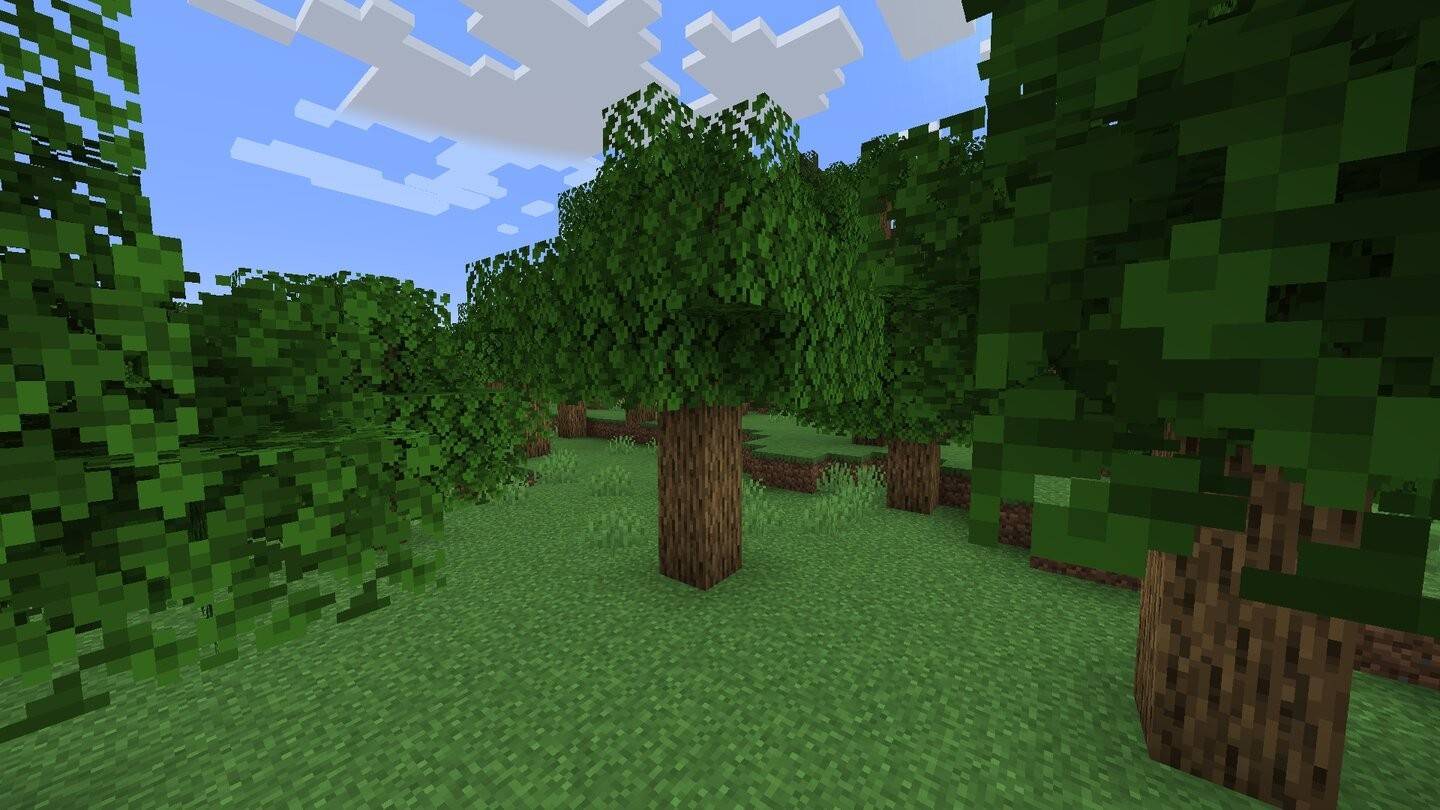 Image: ensigame.com
Image: ensigame.com
As the most ubiquitous tree, oaks thrive in nearly all biomes except deserts and icy tundras. Their versatile wood serves countless crafting purposes—from basic planks and sticks to intricate fences and ladders.
Oak trees occasionally yield apples, valuable as early-game sustenance or golden apple ingredients. The wood's neutral hue blends seamlessly into diverse architectural styles, from cozy cabins to urban developments, making it a builder's staple.
Birch
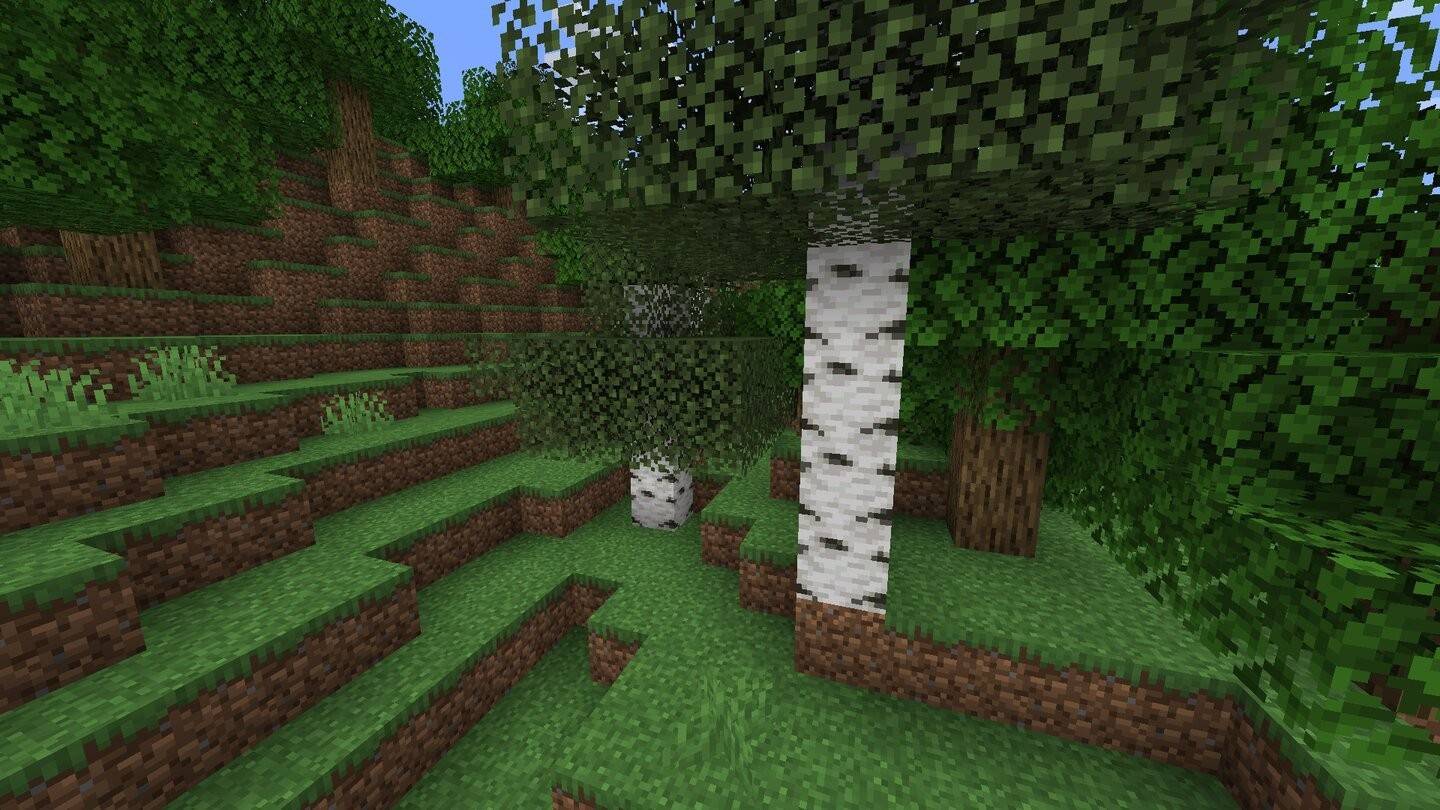 Image: ensigame.com
Image: ensigame.com
Birch stands out with its pale timber and distinctive grain, ideal for contemporary or minimalist builds. Thriving in birch forests and mixed biomes, its smooth texture complements stone and glass exceptionally well, allowing for bright, airy interior designs.
Spruce
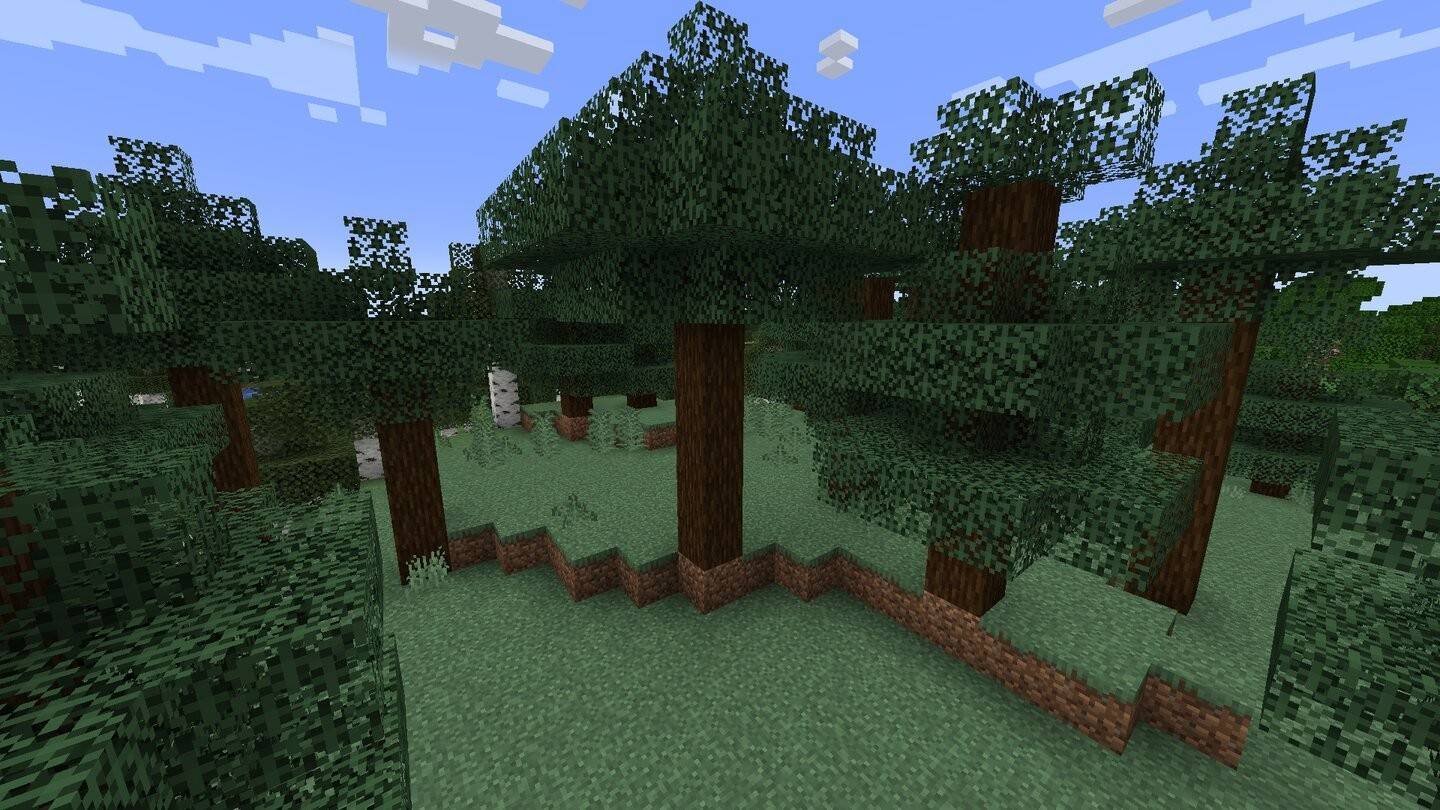 Image: ensigame.com
Image: ensigame.com
Dark spruce lumber excels in gothic architecture and medieval constructions. These towering conifers dominate taiga and snowy biomes, though their height presents harvesting challenges. The wood's rich texture adds warmth and character to castles, bridges, and countryside dwellings.
Jungle
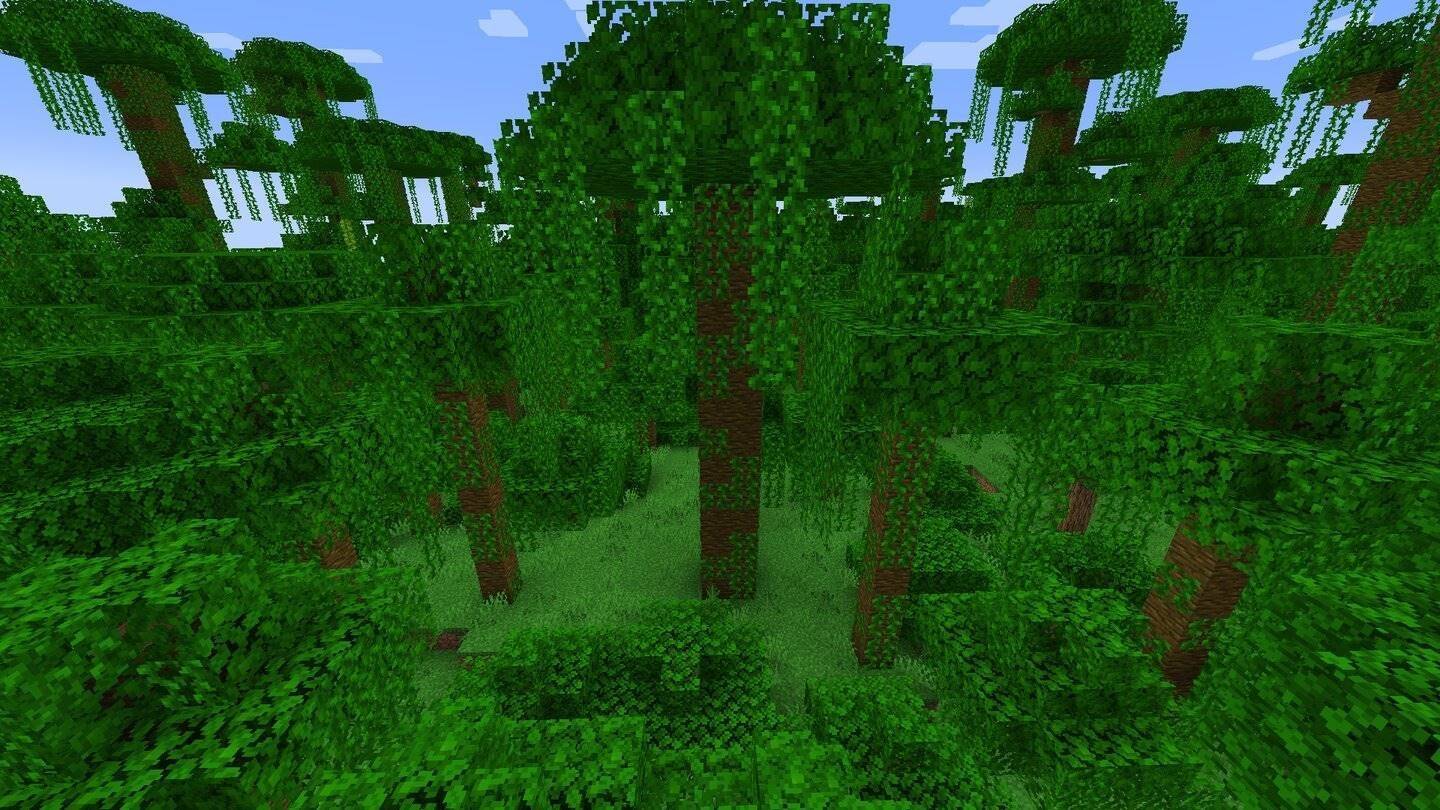 Image: ensigame.com
Image: ensigame.com
Exclusive to jungle biomes, these massive trees reach extraordinary heights. Their vibrant wood primarily serves decorative purposes, while naturally growing cocoa pods enable cocoa farming. Jungle planks lend themselves perfectly to adventurous builds like pirate hideouts or tropical retreats.
Acacia
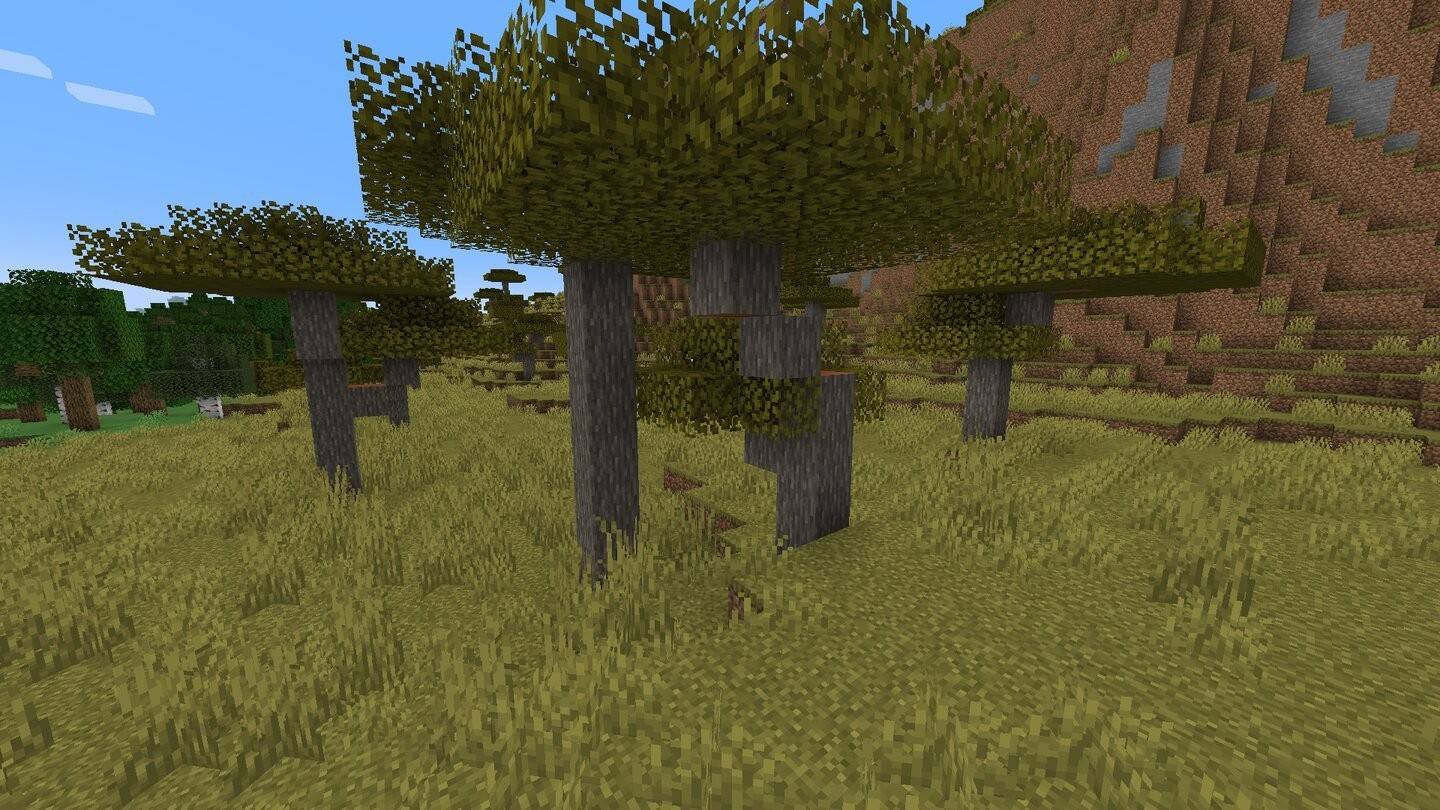 Image: ensigame.com
Image: ensigame.com
Acacia's signature reddish-brown timber shines in savanna builds. Their distinctive branching pattern and desert adaptation make them perfect for crafting authentic ethnic villages or African-inspired structures.
Dark Oak
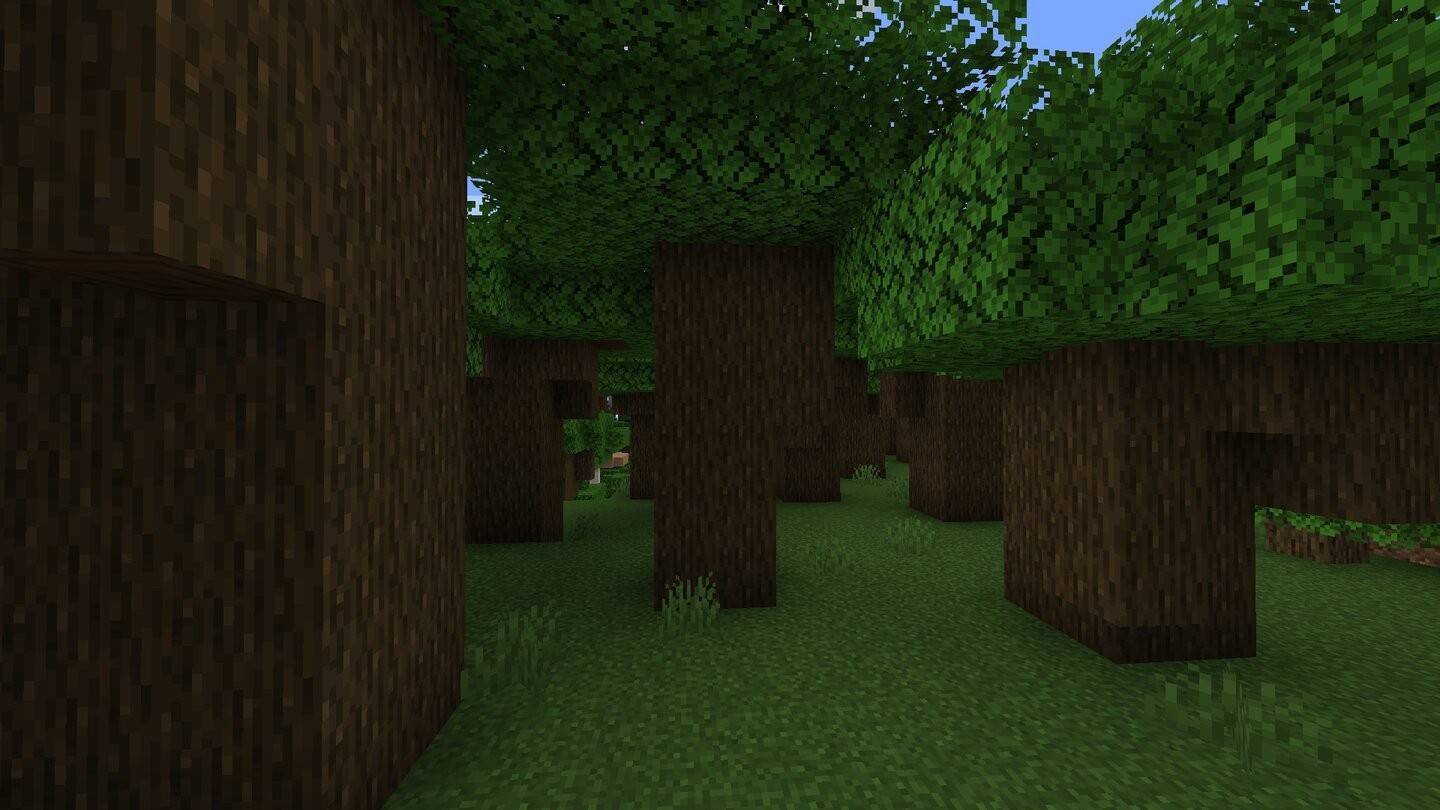 Image: ensigame.com
Image: ensigame.com
This chocolate-hued hardwood grows exclusively in Roofed Forests, requiring four saplings per tree. Its luxurious depth enhances castle architecture, grand doors, and sophisticated interiors, though acquisition proves challenging early-game.
Pale Oak
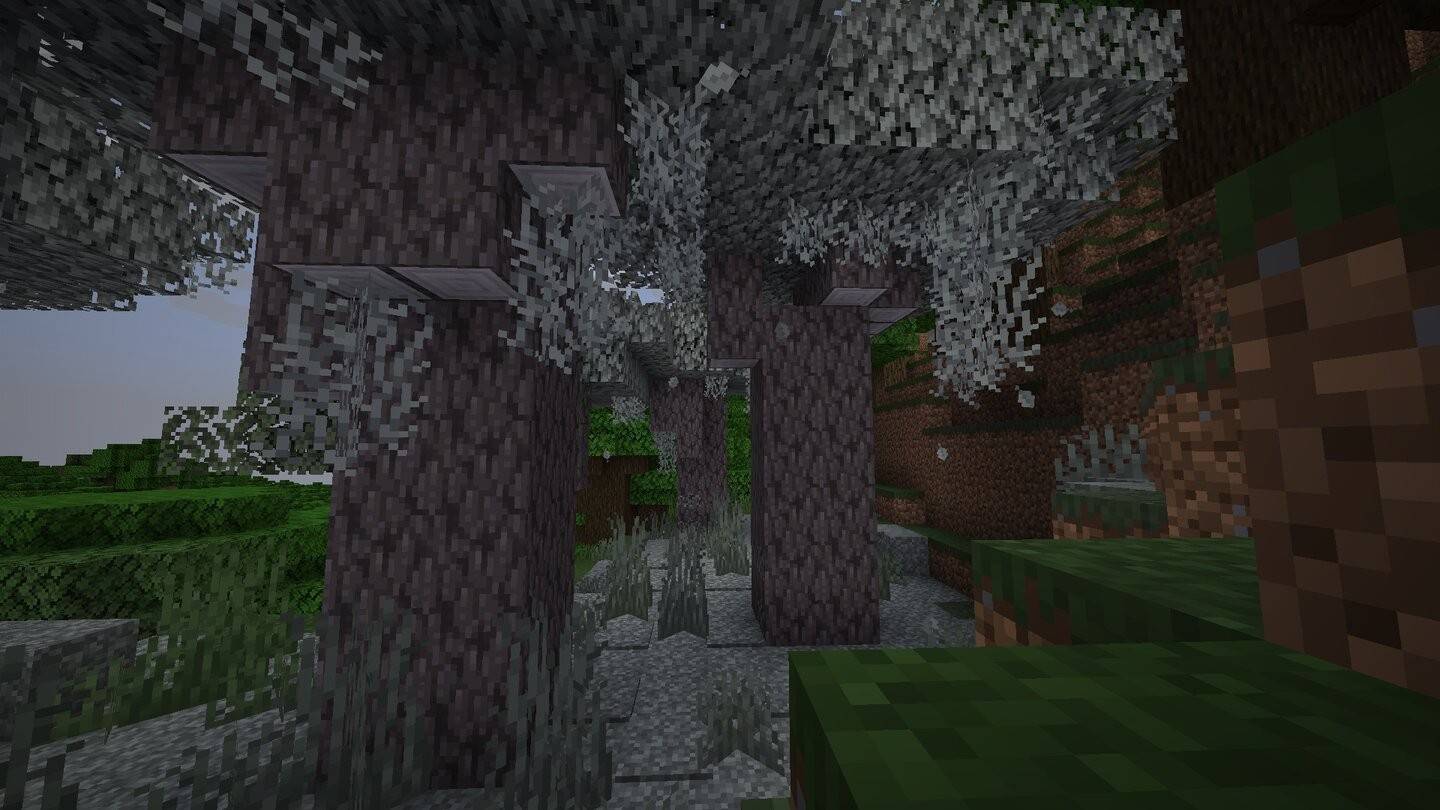 Image: ensigame.com
Image: ensigame.com
A Pale Garden biome exclusive, pale oak mirrors dark oak's texture in spectral grays. Its moss-draped branches harbor eerie "skripcevina" that summons nocturnal "skripuns." The wood's monochromatic scheme creates striking contrasts when paired with dark oak.
Mangrove
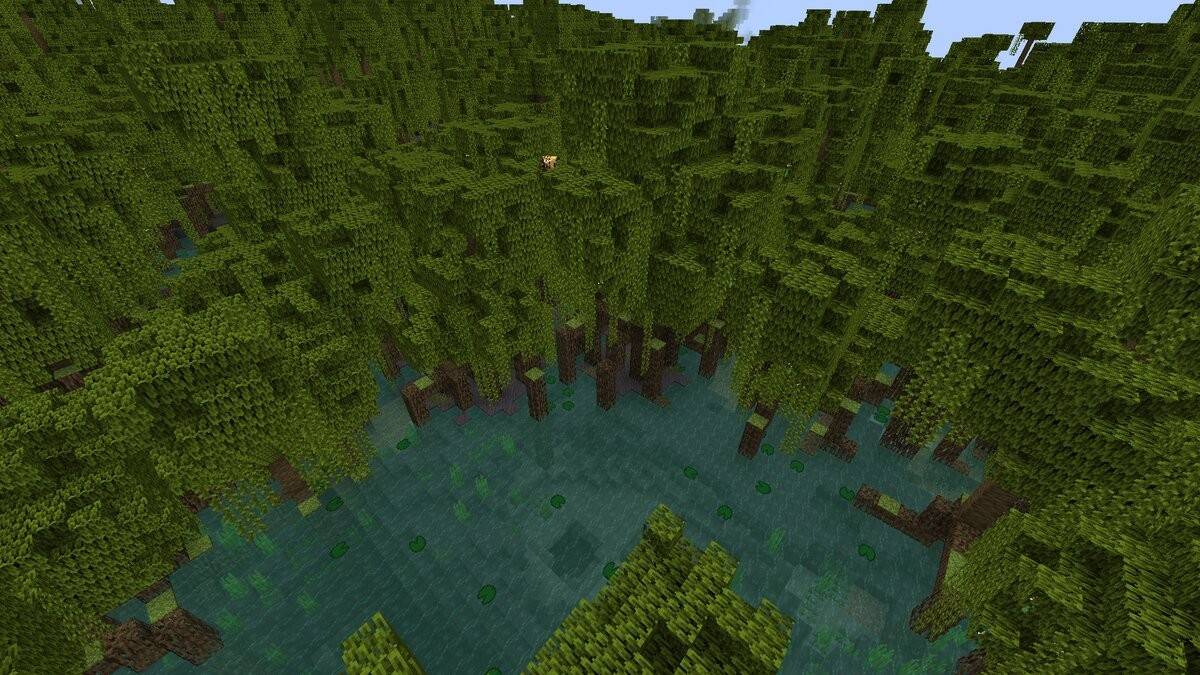 Image: youtube.com
Image: youtube.com
Introduced recently, mangrove trees flourish in swampy environments. Their reddish-brown wood and distinctive roots enhance coastal builds like docks and boardwalks, adding natural authenticity to wetland constructions.
Warped
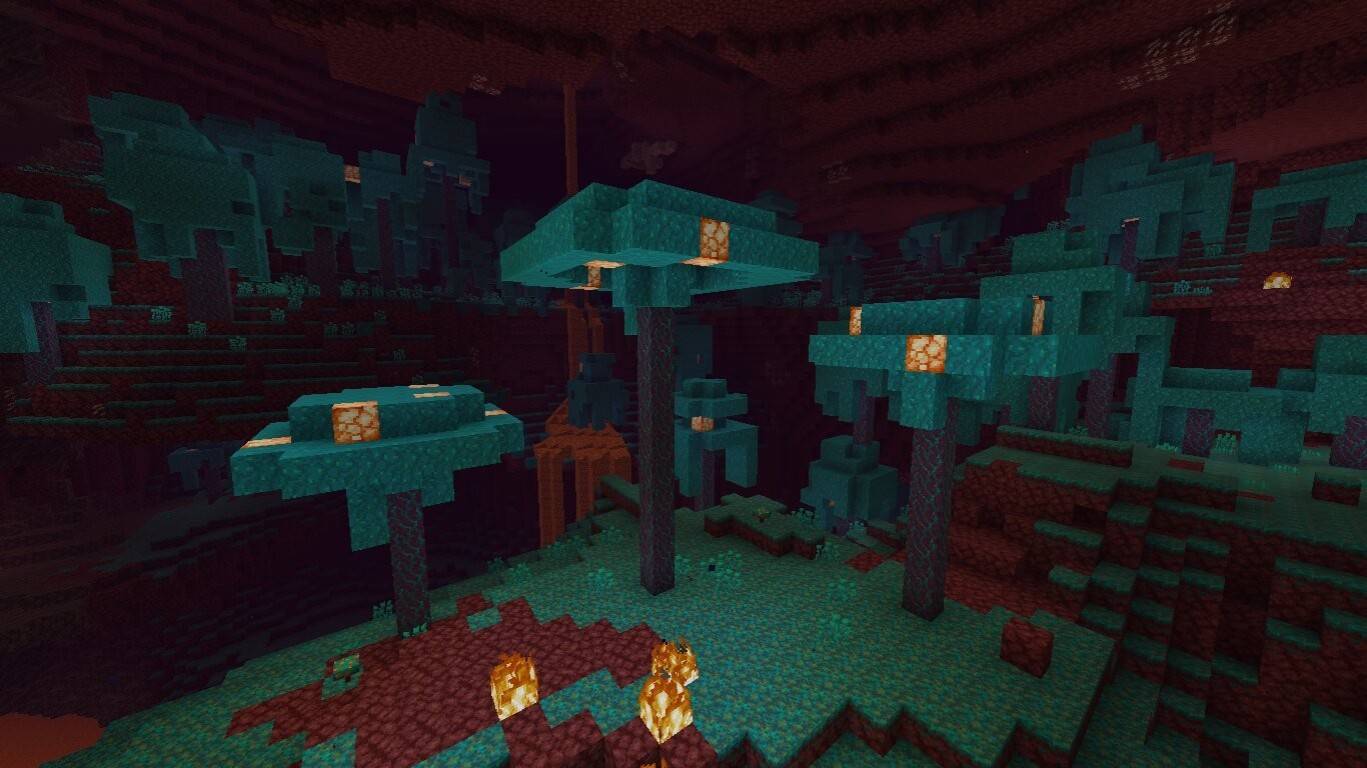 Image: feedback.minecraft.net
Image: feedback.minecraft.net
This Nether-native species boasts turquoise wood perfect for fantastical builds. Its non-flammable nature allows safe use around lava, while the vibrant color enhances magical towers, mystical portals, and otherworldly gardens.
Crimson
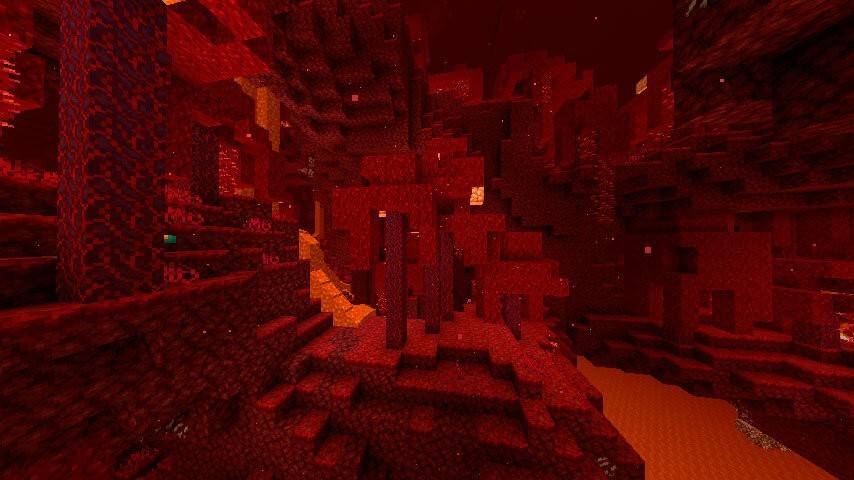 Image: pixelmon.site
Image: pixelmon.site
The Nether's second wood type features deep red-purple hues ideal for sinister builds. Like warped wood, crimson's fireproof nature makes it perfect for hazardous environments, while its dramatic coloring enhances Nether-themed interiors.
Cherry
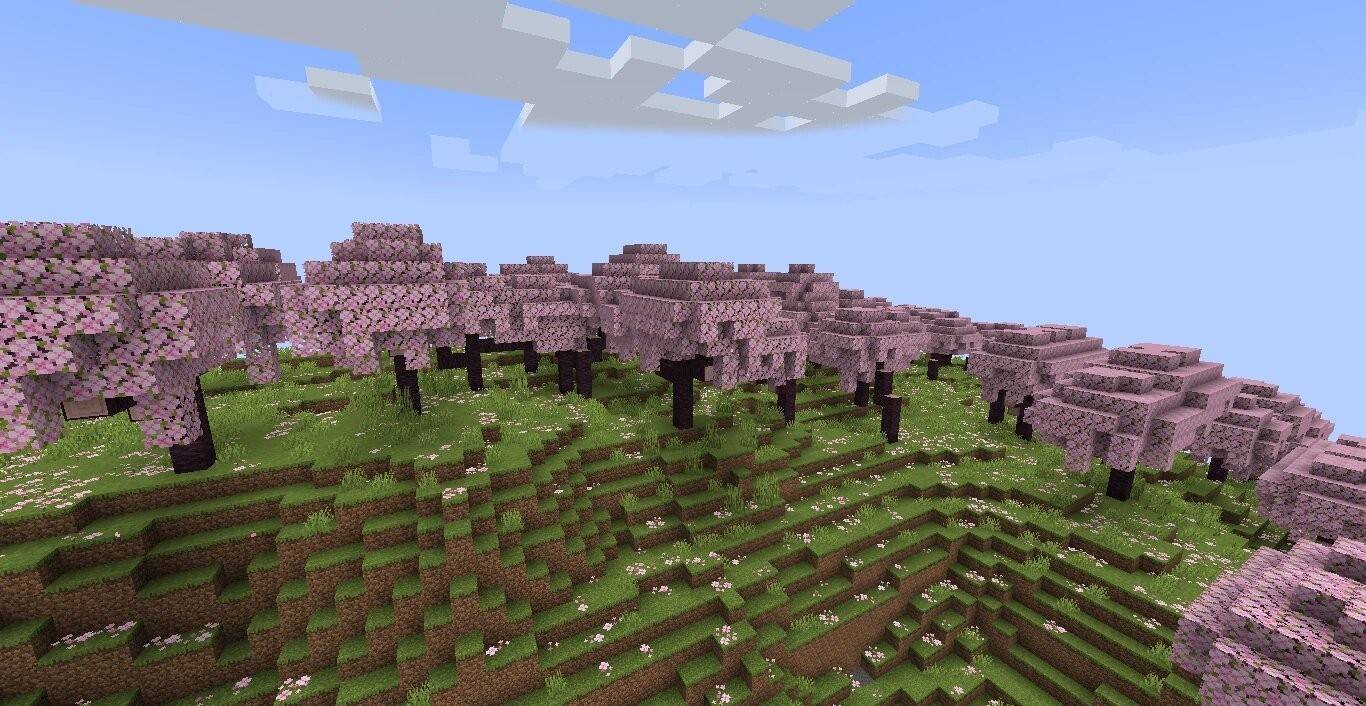 Image: minecraft.fandom.com
Image: minecraft.fandom.com
Unique to cherry grove biomes, these trees produce falling petal effects alongside their vibrant pink wood. Perfect for atmospheric builds, cherry wood brings unmatched charm to decorative elements and specialty furniture designs.
Azalea
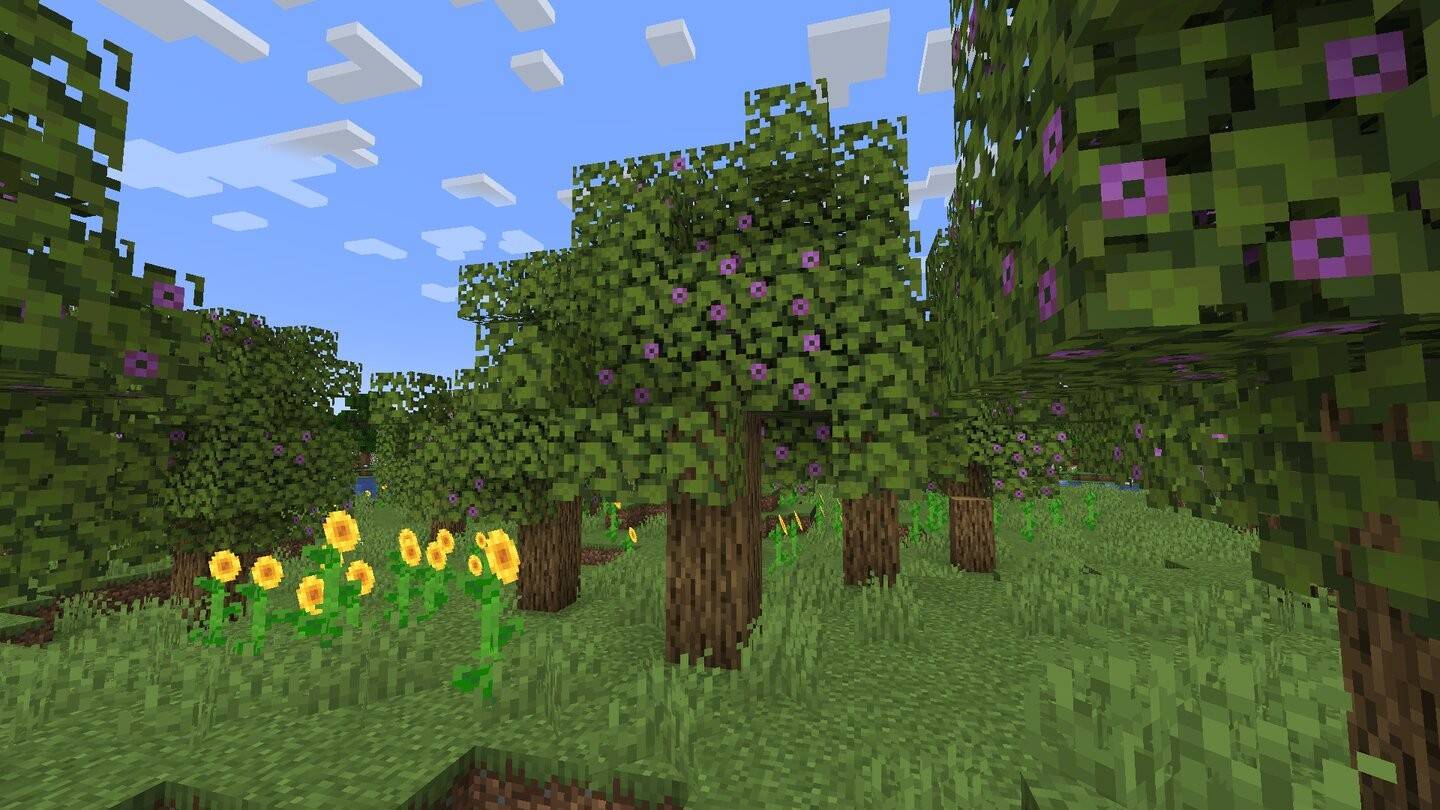 Image: ensigame.com
Image: ensigame.com
Distinct from regular oaks, flowering azaleas generate above lush caves—helpful for locating underground resources. Though producing standard oak wood, their ornamental flowers and root systems make them intriguing landscape features.
Wood transcends basic utility in Minecraft—it's the cornerstone of survival and creative expression. While interchangeable for crafting, each wood's unique aesthetics empower builders to create distinctive structures. Mastering wood varieties unlocks endless possibilities for construction, decoration, and specialized farming. Grab your tools, explore diverse biomes, and transform these natural resources into virtual masterpieces!



























